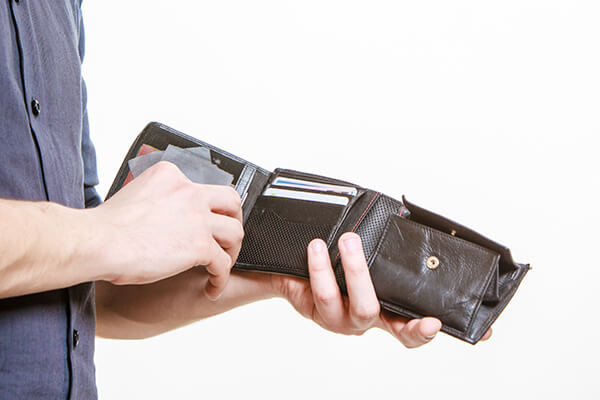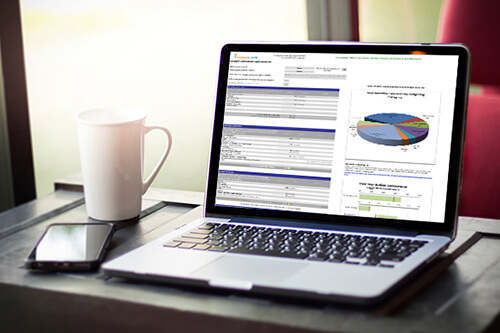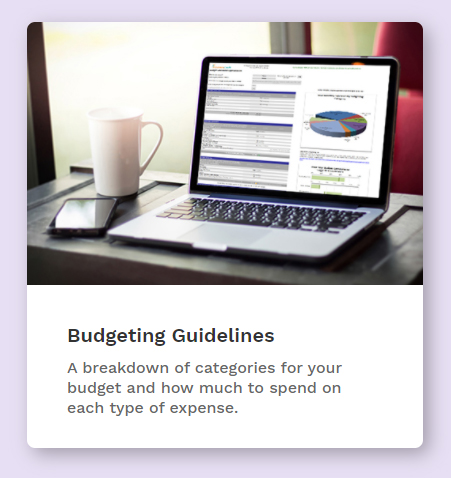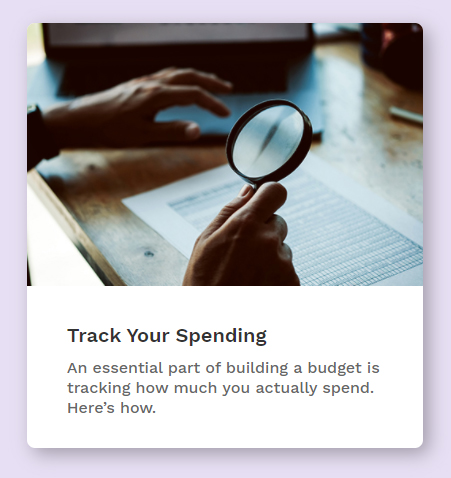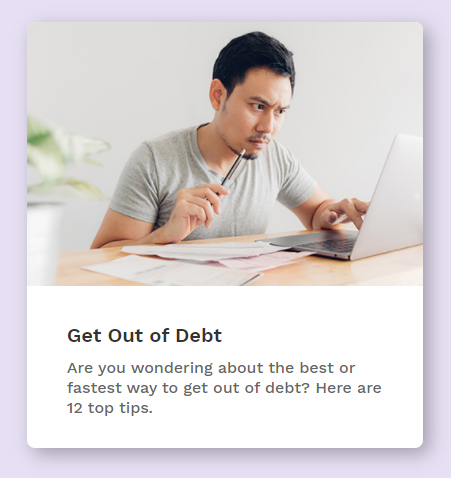Five Reasons to Avoid Instant Payday Loans
By Debra Pangestu
Emergencies often happen when you least expect it, and if you’re not financially prepared when disaster strikes, the best thing you can do for yourself – and your finances – is to avoid payday loans, no matter how hard up for cash you are.
These days, there are lots of online payday loan lenders and direct payday lenders that allow you to get same day payday loans instantly. The concept of payday loans or cash advance loans is fairly straightforward: you borrow the amount of cash you need plus an additional fee, and you pay back that amount when your next pay cheque arrives in your bank account. If you can pay back the loan by your next payday and you don’t mind shelling out the extra fee, a payday loan won’t cause you much harm, provided that you don’t make it a habit of turning to these quick loans each time you’re short on cash.
Although payday loans are a convenient way to get fast cash – these are loans with no credit check, and the payday loan application is fast and easy – it’s also a quick way to get into financial difficulty, if you aren’t careful. If you’re considering – or have considered – getting payday loans in Canada, take a moment to consider these reasons to avoid an instant payday loan.
Quick Payday Loans Come With High Interest Rates
One of the main reasons not to get an instant online payday loan has to do with their high interest rates, which are often higher than the interest rates on personal loans and credit cards.
Most payday loan agreements assess a fee for every $100 borrowed, which can range from $15 – $30. For example, if someone took out a $100 payday loan, they would have to pay back $115 by their next paycheque. A $15 fee to borrow $100 may appear like 15% interest, but when you do the math, it’s actually equivalent to a 390% annual interest rate, which is more than 10 times the typical rate on a high-interest credit card.
Although payday loans are meant to be a short-term fix if you need cash now and maybe have bad credit, the reality of it is that with the quick turnaround time (borrowers have until payday to repay the loan) and the high loan interest, a lot of borrowers aren’t able to repay the full amount. Rather than defaulting on their loan, many borrowers opt to renew the loan, and in some cases the loan gets renewed so many times that borrowers can end up paying almost as much as the loan itself in just fees alone.
Payday Lenders Charge Costly Fees
These easy loans come with a quick turnaround time and quite often the borrower isn’t able to pay back the loan once payday rolls around. This leaves the borrower with two options: the borrower can default on the loan and run the risk of getting sent to collections, or the borrower can pay an additional fee to roll over the loan for another two weeks. And, as we’ll see, these fees are yet another reason to avoid payday loans.
When the loan is renewed, most payday companies assess a fee on top of the outstanding balance. So using our previous example, if you take out a $100 same day loan – which turns out to be a $115 loan with the initial fee – and you choose to renew the loan because you can’t pay off the payday loan by your next payday, you can expect to owe about $130, depending on the cost of the renewal fee.
What starts off as a quick fix and a relatively manageable level of debt can quickly escalate due to the accumulating fees. The more the loan amount increases, the more difficult it becomes to pay off the loan in full, which leaves the borrower with no choice but to continue renewing the loan and accumulating more debt.
Many people who aren’t able to pay back their loan for good often get caught in an unending cycle because they have to keep carrying over their loan, or they end up taking another payday loan online from another loan lender in order to pay off an existing one, which is something we’ll explore more in depth below.
Relying on Fast Cash Can Lead to a Debt Cycle
Even though most payday loans in Canada are to be repaid within two weeks, reports have shown that the average payday borrower stays in debt for a much longer time period. Because of the high fees and interest rate, it’s easy to get caught in a repeat cycle of rolling over the loan for another two weeks, or taking out another payday loan in order to pay off old loans.
For example, let’s say an emergency came up and you needed $200 in cash. If your credit cards are maxed out and you don’t have enough money in your chequing or savings account, you turn to a payday advance lender to get the cash. For a fee, you get the money on the spot which brings you a temporary wave of relief. But come payday, you realize you don’t have enough money to meet your day-to-day expenses plus the cost of the loan.
So, you put down more money to extend the loan, which you hope to pay back by your next payday. However, by this time the amount you owe has increased, making it even more of a struggle to pay off the loan completely. So, you extend the loan once more to buy more time to pay off the loan. And, that’s how the debt cycle starts. As the cycle continues your balance keeps growing, and it could reach a point where you owe more in fees than you do on the outstanding loan.
Instant cash comes with a price, in the form of high fees and interest rates. This method of borrowing money can get expensive, especially if you’ve made a habit out of taking payday loans just to meet your day-to-day expenses. Getting a payday loan may help you get out of a financial jam, but it’s only a temporary solution to a more serious underlying problem.
Relying on Payday Loans Facilitates Unhealthy Financial Behaviour
It’s convenient and easy to get a payday loan, but the downside with getting easy cash is that it’s a temporary fix for a long-term financial problem. Until you can remedy the underlying problem, getting payday loans will only strengthen unhealthy saving and spending habits, which will cause financial troubles in the future.
It may not seem like a big deal to take out an emergency cash loan, but the reality of it is that more people are turning to quick payday loans to cover everyday living expenses, such as groceries, utilities and rent. This sort of borrowing is particularly harmful, because the more accustomed you are to taking out fast cash loans whenever you need money, the less likely you are to learn how to manage your finances properly.
Managing your finances and knowing how to budget and save for emergencies is crucial to financial freedom. If you’re just managing to get by now with a few payday loans here and there, an external event – such as a job loss, an illness or a major home repair – can really take a hit on your finances. The danger with this is that you may resort to taking out payday loans to cover both the emergency and your living expenses, which could tip you into a debt cycle that’s hard to get out of.
If you find yourself taking out instant loans to cover basic expenses, this is a red flag that signals your finances could use a makeover. Instead of turning to cash lenders when you’re in need of money, it may be to your benefit to turn to a credit counsellor instead. More often than not, we need a payday loan because we don’t know how to budget money, how to save, and how to live within our means, and this is something an accredited credit counsellor can help you with.
Avoid Going to Direct Payday Lenders Because There are More Affordable Ways to Get Cash
What some people aren’t aware of is that a pay cheque loan or any online loan doesn’t have to be a solution to financial shortfalls – it pays, literally, to consider other options. To start, if you have a decent relationship with your creditors, it doesn’t hurt to ask them if they’re willing to extend your due date. If you know you won’t be able to make your payment on time, call them and let them know the soonest you can. If you ask, most creditors are willing to work with you to extend your due date or set up a payment arrangement so you can make a series of smaller payments.
Another option is to ask your employer for an advance on your paycheque. If you work for a small company with flexible policies, they may be willing to give you a payday advance, which is the same in principle as getting a payday loan, but without the excessive fees. However, you also have to keep in mind that getting a payroll advance will also lower your next pay cheque direct deposit.
Borrowing from your family or close friends is another means to get short term loans. You’ll have to swallow your pride by asking those close to you for help, but it won’t be nearly as expensive as going to a payday lender. But, getting a cash loan from a friend or family member can be tricky, because if you don’t pay back the loan as agreed upon, it could damage lifelong relationships. So, if you decide to borrow money from family or friends, be as serious about repaying the money as you would pay back the bank or a business lender.
If you have a credit card with an available balance, you can use that to pay for the emergency or take out a cash advance. Although you’ll still have to pay a fee and interest for taking a cash advance on your credit card, it’ll be less costly than a payday loan. Bear in mind that cash advances do have high interest rates (averaging about 30% annual interest), so make sure you don’t charge anything else on the credit card and that you pay off the balance as quickly as possible.
If you’ve exhausted all these options and you’re still short on funds, it’s time to start looking at your budget. You can decrease your monthly expenses by cutting down on things such as food and groceries (pack a lunch to work or swap meat for a less expensive protein like tofu or eggs), minimizing transportation costs (take public transit, carpool, run errands on a single trip to avoid unnecessary driving), and scaling back on entertainment (borrow DVD’s from the library, hold a games night instead of going to the movies). Here are more ways you can save money and pay off debt.
To further boost your cash flow you can consider clocking in overtime hours at work or getting a side job. Not only will the increase in income help you pay off your payday loan, it will also help you start saving money so you won’t have to turn to payday loans again. If you have a hobby or a skill in great demand – such as baking or photography – you can offer your services to people in exchange for money. Also, if you have a garage full of household items you no longer need, you can sell them on sites such as Craigslist or Kijiji. Not only will you get a source of money, but you’ll also be clearing away clutter in your home.
Turning to community resources for help is another option worth considering. Food banks and soup kitchens exist in communities for a reason: they’re there to help people who are in a tight financial situation and are struggling to get by. Many people have turned to these resources when they were in need of a helping hand, and if you find yourself in need of help, these resources are here for you. If getting a meal from a soup kitchen or some cans of food at the food bank can save you an extra $20 or so to help you pay off payday loans, it’s certainly a move worth making.
Alternatives to Personal Loans for People with Bad Credit
Last Updated on August 22, 2025
Need more help?
See how we can help you. Just answer 4 simple questions
If you can take a minute to answer these 4 multiple-choice questions, you can find out how we can help you. It will only take a minute, and what you discover may surprise you.
It’s possible that other options may be available to you so that you don’t need to rely on payday loans anymore. If you can take a few minutes and answer 9 quick questions, you can find out. Just click the button below and then respond to the short questions.
Getting Out of the Payday Loan Cycle Takes Time, Planning and Dedication
These days it’s easy to get payday loans, whether it’s through a brick and mortar lender or through a website that offers online payday loans, especially since it’s easy to fill out an online application form. However, it’s important to remember that there isn’t a quick fix when it comes to financial trouble. Getting one payday loan won’t put you in a financial tailspin, provided that you can pay off your loan and the fees in full by our next payday. But in many cases, payday loans often get renewed and carried over into another loan, which can lead into an unending cycle of borrowing.
If you want to put a stop to the payday loan cycle, you first need to ask yourself why you needed to go to a payday lender in the first place. Once you know the answer to that question, you’ll have taken a step towards figuring out how to get out of payday loans.
The Best Way to Get Payday Loan Help
The best way to get payday loan help is to make an appointment to see an accredited, non-profit credit counsellor. Getting a payday loan is a temporary solution to what often is a longstanding financial problem, and it’s something you should learn to live without in the future. A credit counsellor will be able to help you identify which areas of your finances need strengthening and re-restructuring so you can keep up with payments while meeting your basic expenses. In addition to helping you put together a budget, a credit counsellor will also explain what measures you can take to avoid payday loans for good, and they’ll also provide you with different options so you can get your finances back on track.
